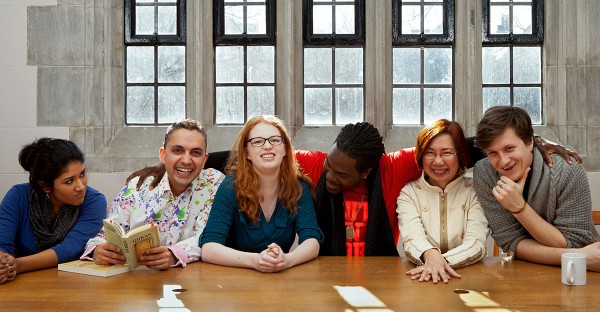How Trauma-Informed Pedagogy Will Strengthen Equitable Classrooms

Emmanuel College will strengthen its commitment to fostering an inclusive and supportive learning environment by providing training for trauma-informed approaches in teaching to its faculty and staff. The new initiative is possible thanks to a grant from the Wabash Center, which seeks to enhance education in theological schools in the United States and Canada.
Trauma-informed pedagogy recognizes that the past and present experiences of both students and educators may affect them negatively in the classroom, and that people who have experienced trauma may have unique needs or require special attention. This approach focuses on building relationships, creating a sense of safety and trust, and acknowledging and accommodating these diverse experiences and needs.
“Our work toward trauma-informed teaching is one outcome of our DEAR Declaration, a statement of commitment to Dignity, Equity, Accountability and Responsibility,” says Rev. Dr. HyeRan Kim-Cragg, principal of Emmanuel College. “We continually seek to be a more intentional and caring community—one that is enriched by our differences, and attentive to justice and care both within our community and in equipping spiritual leaders for the larger world. Being a trauma-informed College is one component of fulfilling our commitment to equitable classrooms.”
“Some of our faculty are certified therapists and clinical supervisors with training in trauma-informed responses,” says Rev. Dr. Pamela R. McCarroll, vice-principal of Emmanuel College. “In a context with multiple diversities like Emmanuel, however, the opportunity to engage all of our instructors in creating these safe, brave spaces is very welcome.”
In this complex, post-COVID environment, people are living through overlapping layers of crises, says Dr. McCarroll, and mental health challenges are on the rise. “A trauma-informed approach helps deepen the sense of care and community with interactions and discussions around racism, Islamophobia, transphobia, inter-generational trauma, gender-based violence, issues of power, privilege and/or ableism, and Indigenous-settler relations, just to name a few.”
The grant, worth approximately $40,000 CAD, will help fund a variety of experiential-based workshops and small-group learning sessions for Emmanuel’s faculty, beginning with a two-day retreat in late August.
“We recognize that our professors need to be equipped for transformative encounters and relationship-building across the curricula,” says Dr. McCarroll. “This generous grant from the Wabash Center will empower Emmanuel’s faculty to take the lead in how we live out the values of the DEAR document in the classroom.”
